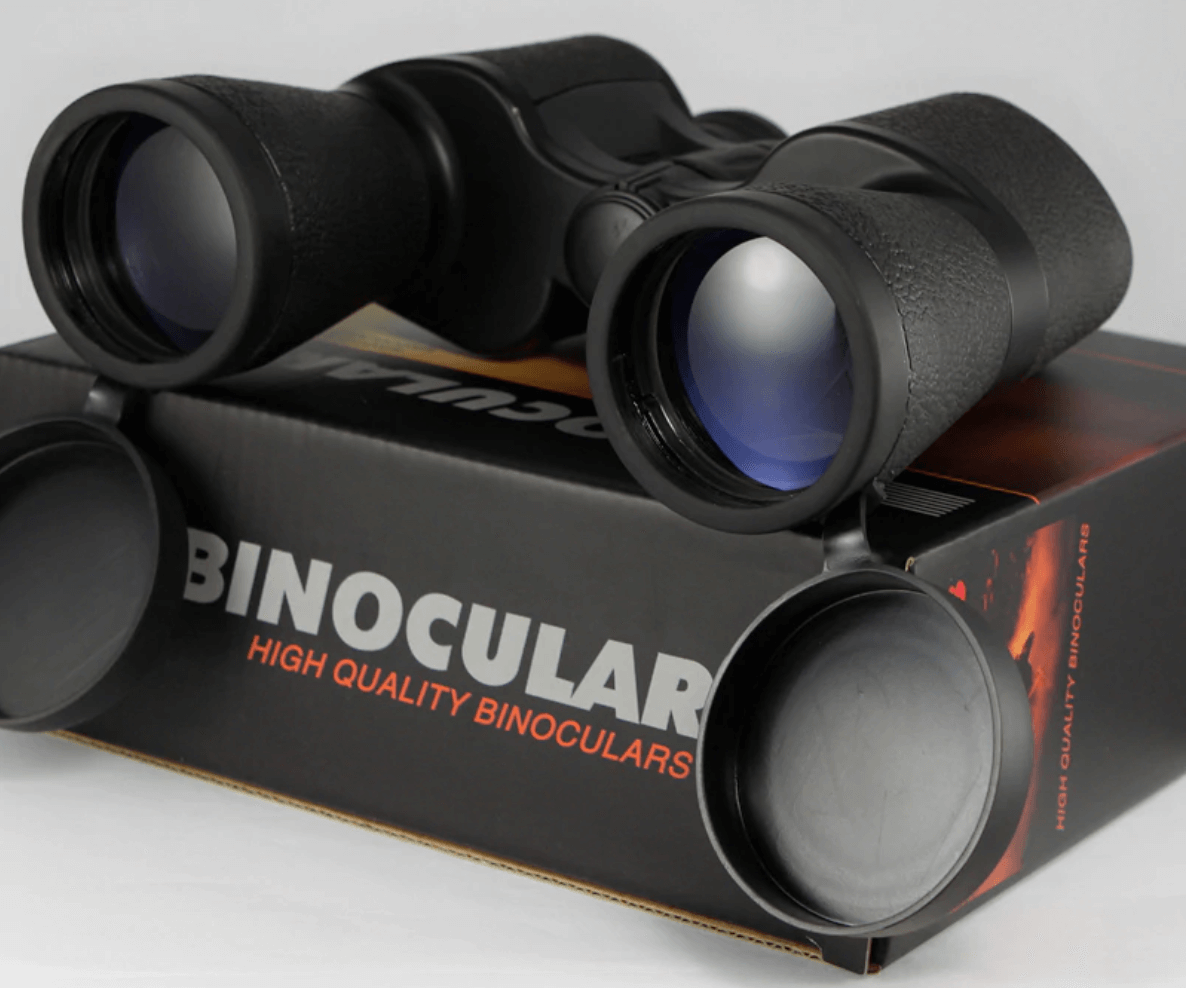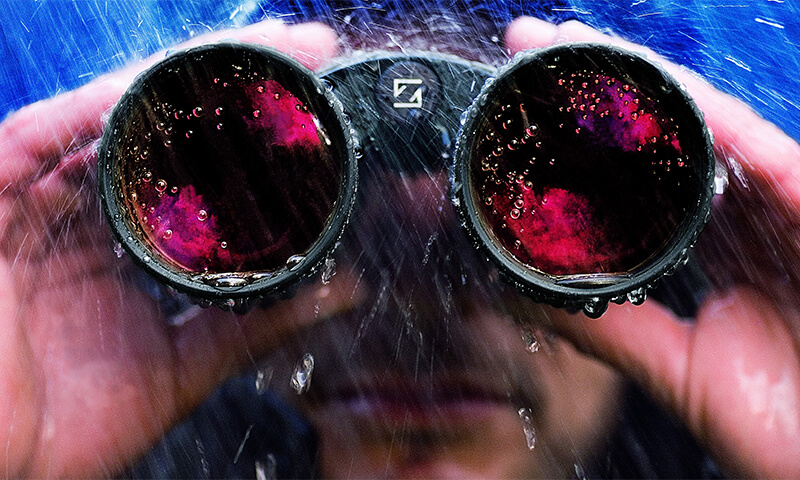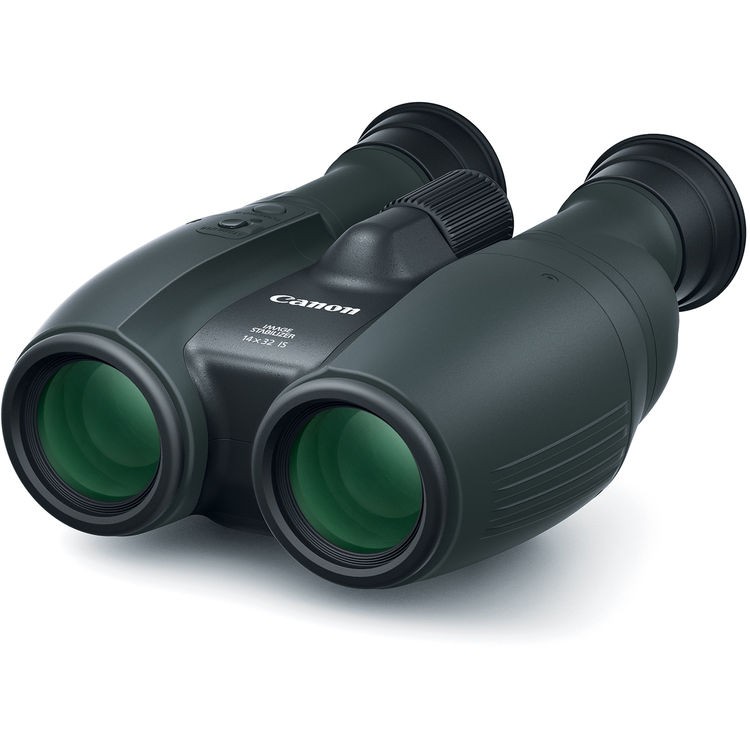Binoculars vs Telescopes – Are Binoculars Better Than Telescopes?
Contents
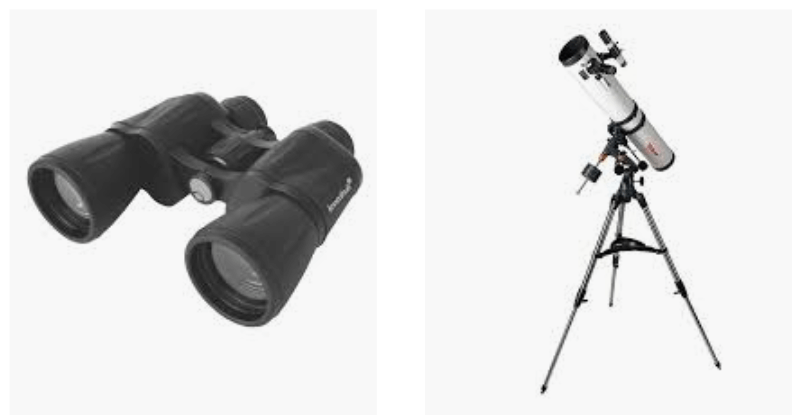
Anyone who loves optics and optical instrument wants to buy a good pair of optical instrument and let’s be honest, sometimes it’s not an easy task.
There are so many optical instruments, such as binoculars, monoculars, telescopes. Selection is really huge.
Each of the optical instrument mentioned here has its advantages and disadvantages.
In order to make the right choice we need to do some research and understand this topic a little better. This will take some time but it’s worth both time and effort.
Because you are going to invest your money into such an amazing purchase of an optical instrument that you will be using for years to come.
You don’t need an optical instrument that you will use one or two times and then put it away and forget. This must be a wise investment.

Advantages of binoculars
1. Binocular is lightweight and compact than telescope
2. You can take binocular anywhere. This aspect alone makes binocular invaluable optical instrument
3. Binocular has a wide filed of view
4. You can look through it with two eyes
5. Finding objects in the sky is much easier than with telescopes
6. Binocular is cheaper than telescopes
7. Binocular doesn’t take space in your room
8. You can look through binoculars for hours
9. You can use it without a tripod
10. Looking with 2 eyes considerably improves your experience
Disadvantages of binoculars
1. Magnification power is limited
2. Powerful binoculars are very expensive
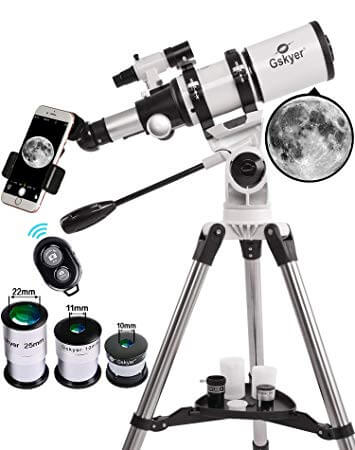
Advantages of telescopes
1. You can see Saturn rings, constellations, big and small craters on the Moon, galaxies.
2. You can upgrade your telescope by changing exit pupils and optical filters.
3. Telescopes are suitable for astro photography
Disadvantages of telescopes
1. Telescope is bulky. You can’t travel with it.
2. You can look through a telescope with one eye only
3. Telescope takes a lot of space in your room
4. You can’t look through a telescope for hours
5. You can use it only with a tripod
6. It shows an upside-down picture
7. Telescopes are not waterproof or fog proof
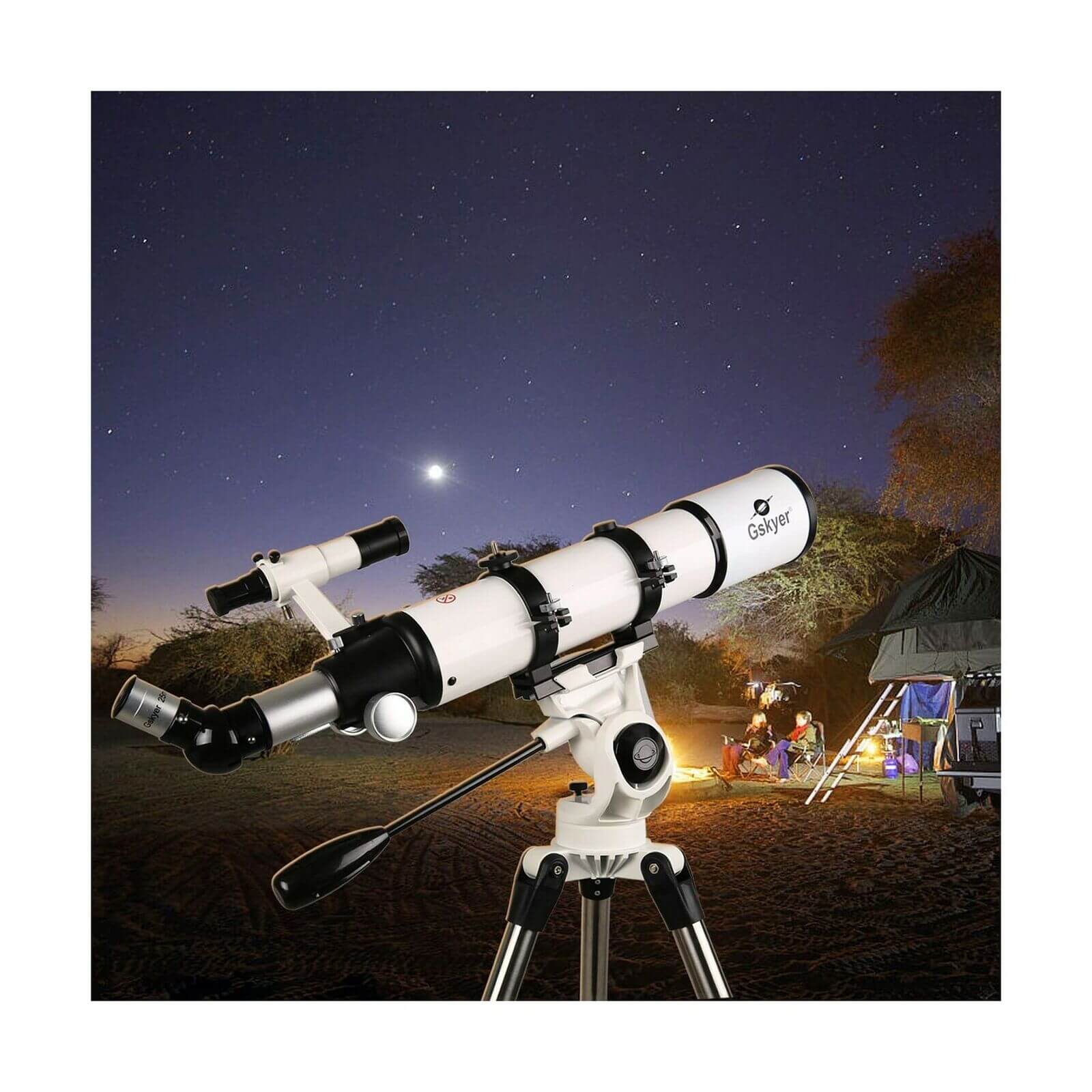
Binoculars vs telescopes?
What is better? Telescope or binocular? Should you buy a big telescope or a small one?
Can you see Moon crates, planets, Saturn rings or constellations?
Or should you buy a powerful binocular? What can each of these optical instruments give you in terms of astronomical observations? Let’s find out the difference.
If you are new to this and have no either binocular or telescope I can tell you the following.
Some people think if they buy a telescope they can see constellations, planets like they see on the pictures online. No, you can’t.
For this purpose you need an optical instrument with magnification power 100x or even more powerful.
I mean not every telescope is going to be helpful in your astronomical observations. A powerful telescope will cost you a few hundred dollars.
Such telescopes are powerful but not as powerful as you might be thinking.
You can see moon craters, constellations and even Saturn rings but you can’t see small details.
When it comes to binoculars, you can’t see constellations, galaxies, Saturn rings. They are not powerful enough.
Even binoculars with magnification power 25x are not powerful enough for that purpose.
There are special binoculars with magnification 50x, 100x that you can use for astronomical observations. But they are expensive.
If you plan to do serious astronomical observations I highly recommend to choose one of those highly powerful binoculars.
Because you can look through such a binocular with two eyes. This means your viewing sessions can last as long as you want.
With telescopes it’s impossible because looking with one eye is highly uncomfortable.
Also, thanks to a wider field of view you can easily find objects, such as planets, constellations, comets with binoculars.
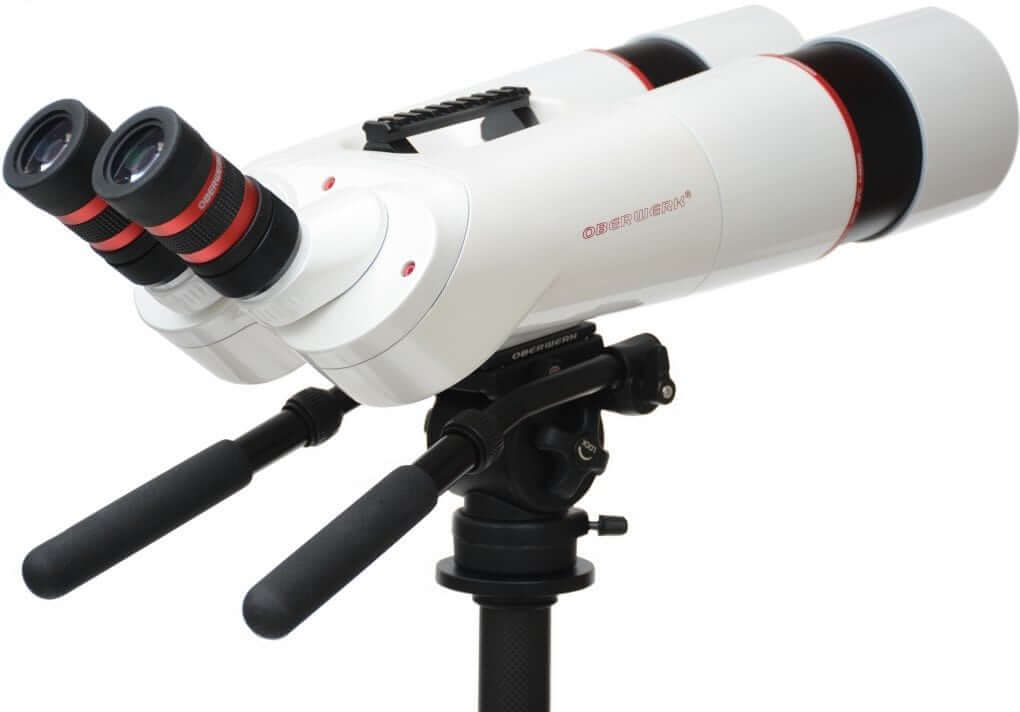
What to choose? – Binocular or a Telescope?
For simple astronomical observations binoculars with magnification 20x, 25x will meet all your requirements and expectations.
For serious astronomical observations or research you need to choose astronomical binoculars that have magnification 50x, 100x.
The advantage of telescope is that you can buy a telescope with magnification 120x for $249 while binoculars with magnification 100x will cost you around $2.000 – $2.500.
As you can see, the difference is huge. But the obvious advantage of a binocular is that you can look through it with two eyes.
If it’s critical for you then binocular is the ideal choice. It’s no secret that binocular will give you more fun and an amazing experience.
Quality telescopes are produced by Celestron ( Celestron – PowerSeeker 127EQ Telescope) can have a magnification up to 250x and the price is pretty affordable, $127.
If you want a super compact telescope, Celestron NexStar 6 SE Telescope is your choice. It has magnification 60x and the price is $799.
Remember, the larger the aperture the better will be image quality produced by a telescope.
Large aperture means telescope transmits more light which means you can see even small objects on the night sky.
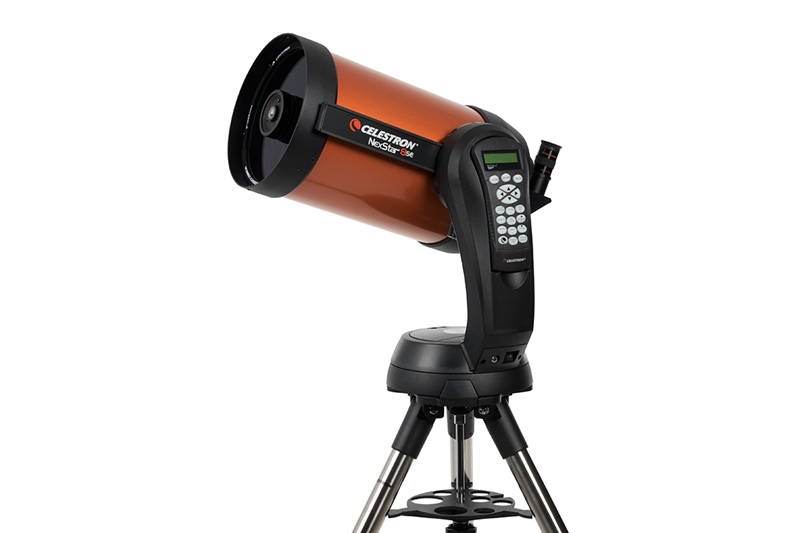
If you can’t afford such an expensive binocular and you need a powerful astronomical instrument then telescope is your ideal choice.
Because even powerful binoculars with magnification power 25x will not satisfy your astronomical needs.
With such a binocular you will see neither constellations, galaxies, nor comets, Saturn rings or Andromeda constellation.
But with binoculars you can see way more stars in the night sky than with a naked eye.
For simple astronomical observations binoculars will be an irreplaceable optical instrument that you can take anywhere.
Modern binoculars are waterproof, fog proof, lightweight and very durable.
If you plan to use telescope both for astronomical observations and terrestrial observations it’s not going to meet your requirements because telescopes show you an upside-down picture.
In fact, you don’t need an upright image when looking on the sky but for terrestrial observations it is unacceptable.
If you are a beginner I recommend to start with a cheap optical instrument under $100.
You can use it both for astronomical observations and general use.
Later, if you like a binocular and feel that you want to have something more serious and powerful and decide what you want to observe then you can invest in buying a good pair of a telescope.
If you already have an experience in using optics and know exactly what you want then get a telescope. You will not be disappointed.
There are some binoculars known as zoom binoculars. Their magnification power can be up to 160x.
If you are new to optics you can get confused and decide to buy zoom binoculars thanks to their “powerful” magnification.
This is a huge mistake because zoom binoculars can’t deliver high quality image and clarity.
It’s better to buy a telescope than zoom binoculars for astronomical observations.
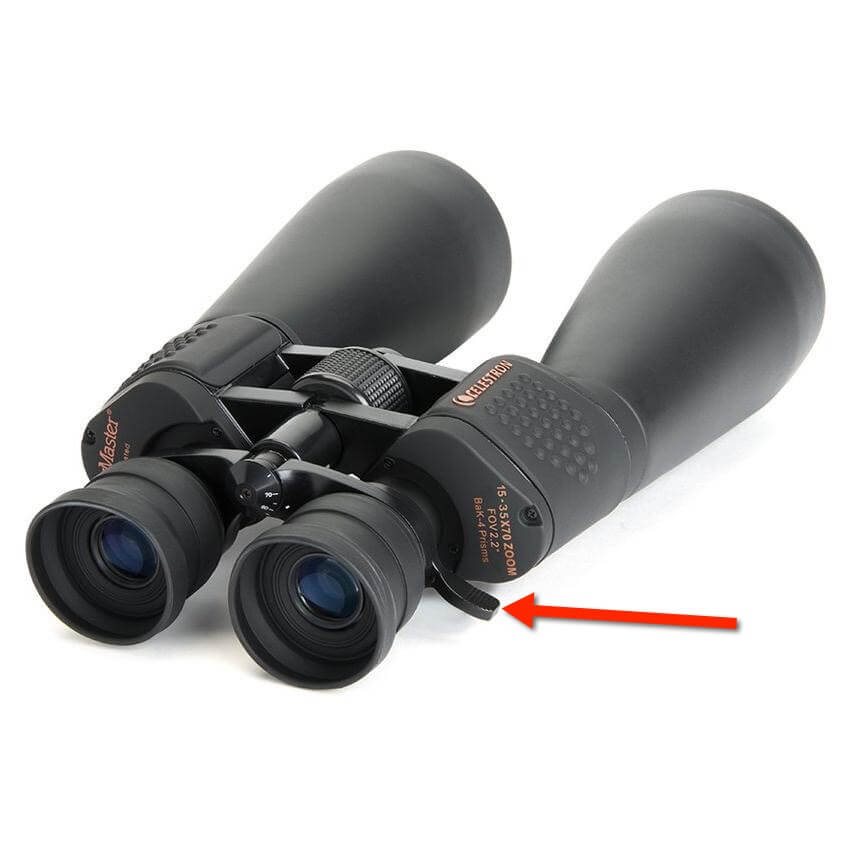
Zoom binoculars can’t get you the same degree of detail that you would with a standard binocular or a telescope.
As you can see from this research, each optical instrument, telescope or binocular has its advantageous and disadvantageous.
You have to decide what to choose depending on your activity. I think binoculars and telescopes complement each other.
You can use telescope to serious astronomical research or observations and use binocular for quick finding objects on the sky.
Because binoculars have a much wider field of view than telescopes.
Finally, telescope is a serious optical instrument that requires professional care and use.
If you feel you are not ready for serious astronomical observations you better buy a good set of binoculars. They are easy to use and don’t require any special care.
Even if you lose interest in astronomy over time you still can use binoculars everywhere.
As a user of different types of optics I recommend to start with a pair of binoculars, such as magnification 15x or 16x.
These two types are super lightweight and very easy to use. And the magnification is not much different from 20x.
BTW, binoculars 20x or 25x are bulky and must be used using a tripod only. For general astronomical observations go for 15x and 16x binoculars.
For serious research the best starting point would be 25x binoculars.
For a comfortable experience binocular is the absolute winner because you look through it with two eyes and get an excellent 3D image.
Even if you choose 25x binoculars it will give you a lot of fun observing objects in the sky.
When it comes to magnification power and being able to see even distant celestial objects, such as constellations, planets of the solar system, galaxies, telescope is the winner.
If you can afford to buy a giant astronomical binocular then it remains a winner.
All experts in the field of optics are of the opinion that looking at the objects with two eyes significantly improves human’s ability to see dark and small objects.
It also improves human’s ability to see colors and get clear vision.




